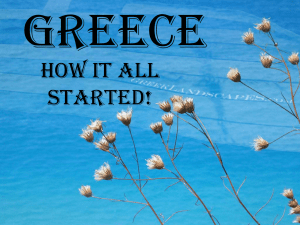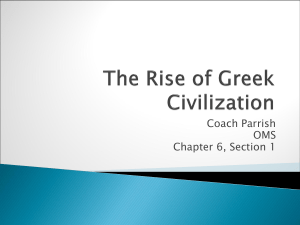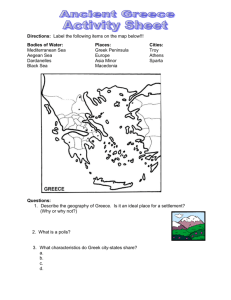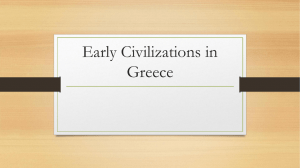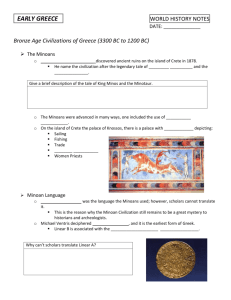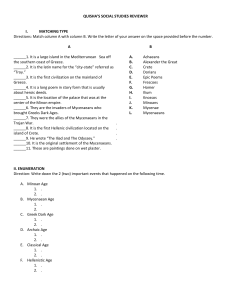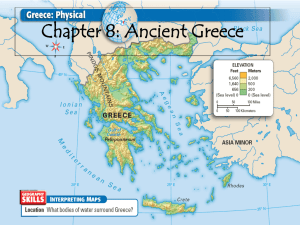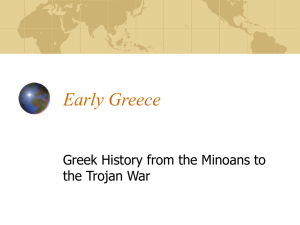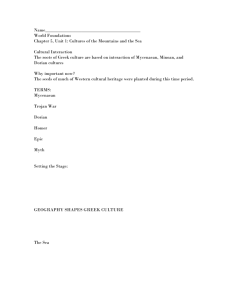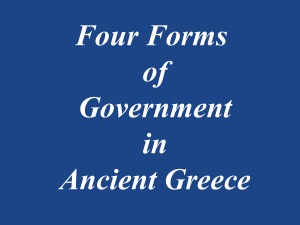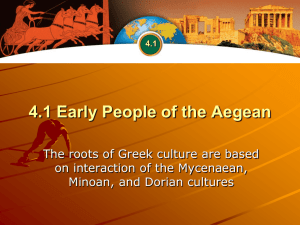Early People of the Aegean
advertisement
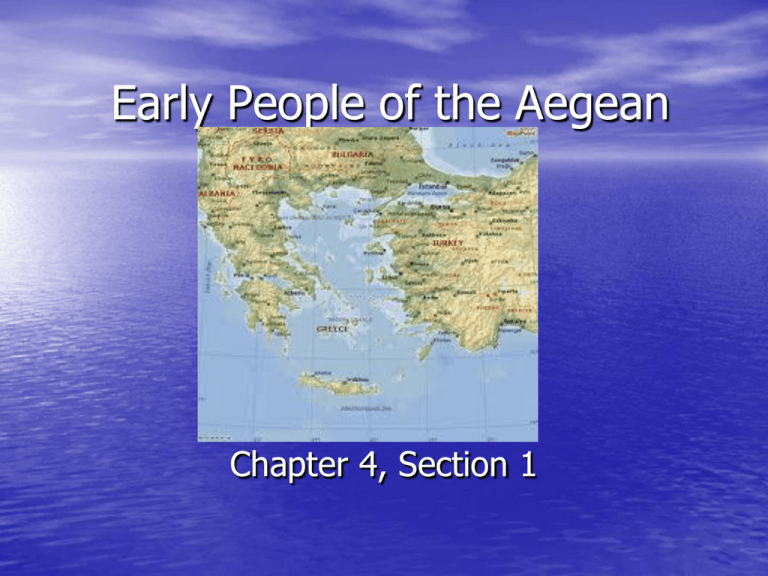
Early People of the Aegean Chapter 4, Section 1 I) Minoans and Mycenaeans shape early Greek civilizations • A) Minoans • Lived on Crete • Traded; set up posts throughout Aegean • Rulers lived in a palace at Knossos • Vanished around 1400 B.C. • Why? – See page 115 • Volcano, earthquake, Mycenaeans • B) Mycenaeans (1400 BC-1200 BC) • First Greek-speaking people • Sea traders • Lived in city states • Fought in Trojan War against Troy II) The Trojan War • Long thought to be legend • Evidence of the war was found in 1870’s dating • • • to 1250 BC Two epic poems by Homer enhance our understanding of the Trojan war: Iliad – tells of the Trojan War and the adventures of Achillles, the mightiest Greek Warrior Odyssey – tells of Odysseus’ struggle as he tries to return home after war III) After the Mycenaean civilization • Greece passed several centuries in obscurity • People lived in small, isolated villages • A NEW Greek civilization would emerge to dominate the region and influence the world………. The Rise of Greek City States Chapter 4, Section 2 I) Geography of Greece • Mountains created valleys • Hundreds of rocky islands off of coasts • Independent city-states formed in these isolated islands and valleys • Rivalries between city-states often led to war Map Activity: Ancient Greece Greeks built cities on two levels, with an acropolis on the top of a hill and a walled main city below. • The citizens, or free residents, of cities, shared responsibilities and debated ideas. • Male landowners held all of the political power. Different forms of government evolved in Greece between 750 B.C. and 500 B.C. monarchy: a hereditary ruler exercises central power aristocracy: rule by a hereditary landholding elite oligarchy: a government in which power is in the hands of a small, wealthy elite As forms of government evolved, new warfare methods also emerged. - Affordable iron weapons replaced bronze, increasing the power of the middle class. - Soldiers trained to fight in a phalanx, and this training created unity. Phalanx warfare put defense of a city-state into the hands of ordinary citizens. At the same time, it led to two influential city-states developing different ways of life. Sparta stressed military virtues and strong discipline. Athens glorified the individual and extended rights to more citizens.
